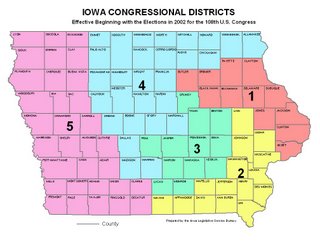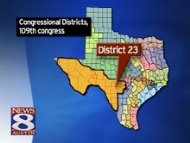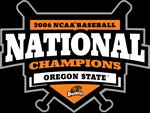I repeatedly listen to songs by Great Big Sea these days. Why?
Picturesque scenes in the Sioux Falls metro are not easy to take in. The namesake Falls represent a destination, not part of the daily commute. The Big Sioux River looks more like a muddy creek or an ice skating venue most of the time, although my family and I enjoy the water when we use the trails for a family hike or a bike ride.
In Douglas Coupland's book City of Glass--he writes about crossing the Lions Gate Bridge in Vancouver and how crossing it grounded him--the way he describes the bridge and its surroundings--I would go as far as to say he is filled with awe upon each crossing. The mountain views and seascape from the bridge represent a constant reminder of place and the importance of place in our lives. I would never say that people who live in the Sioux Falls metro have no sense of place, but from where do they attain their sense of place? The Falls indeed inspire reflection upon the magnitude of what God does through water and stone, but do people constantly think of the Falls in their daily living? Do people wax poetic about the Falls? I'm not so sure...
My next door neighbor grew up on a
Hutterite Colony near Huron, South Dakota. He talks about how he loves living in Sioux Falls--but he didn't tell me about how great Sioux Falls is, rather how the Missouri River near Chamberlain inspires awe in him (in so many words--guys can talk about that kind of stuff over a beer). The Missouri River is a deep source of his grounding. I also know how easy it is to go for weeks at a time without leaving Sioux Falls. How does Sioux Falls metropolitan living maintain any connection with the land? For my wife, Augustana College inspires a strong sense of place--though not largely connected with South Dakota.
Our family carved a new ritual for land connection, at least during the summer. Our Saturday morning takes us to the Sioux Falls Farmers' Market--these days for lettuce, peppers, and new red potatoes. We walk by the river, take in the Falls, and contribute to the local produce trade while we take a look at other folk. We may even run into someone we know. Because of this new ritual, along the regular bike rides along the Big Sioux, I have finally developed a budding sense of place in Sioux Falls that is my own (gee, it only took me 5 years). As an interim pastor, I have served in other people's communities--I learned to appreciate the space in which they lived and worked, yet I never developed my own sense of place. Maybe this subject would never have entered my reflections had I always been serving in the place I lived...
The band Great Big Sea sings many of their songs about a life on the sea. Though I have never been much of a boater, my long term sense of place and connection with the land comes from my constant relationship with the water--much like in Coupland's reflections on the Lions Gate Bridge. One does not have to be a seafarer to maintain a relationship with the water. I cannot help water's grip on my soul (sounds like baptism, eh?) I am reminded of that soul grip in my musical rotation of Great Big Sea's "A Boat Like Gideon Brown." The song sings about the hopes of a father and son, the inspiration of the relationship between humanity and the sea, and the realm of possibility. I've listened to the song 15 times in the past three days. In that song I remember the seascapes of my youth, my sense of place, and the realm of possibility.
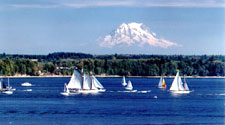
In the early days of my youth, our daily tasks took my family along the perimeter and across Lake Washington.
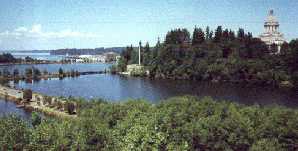
During my high school and breaks from university life, I frequently crossed and drove along the perimeter of the South Puget Sound.
The land and the realm of possibilities...
Elihu
